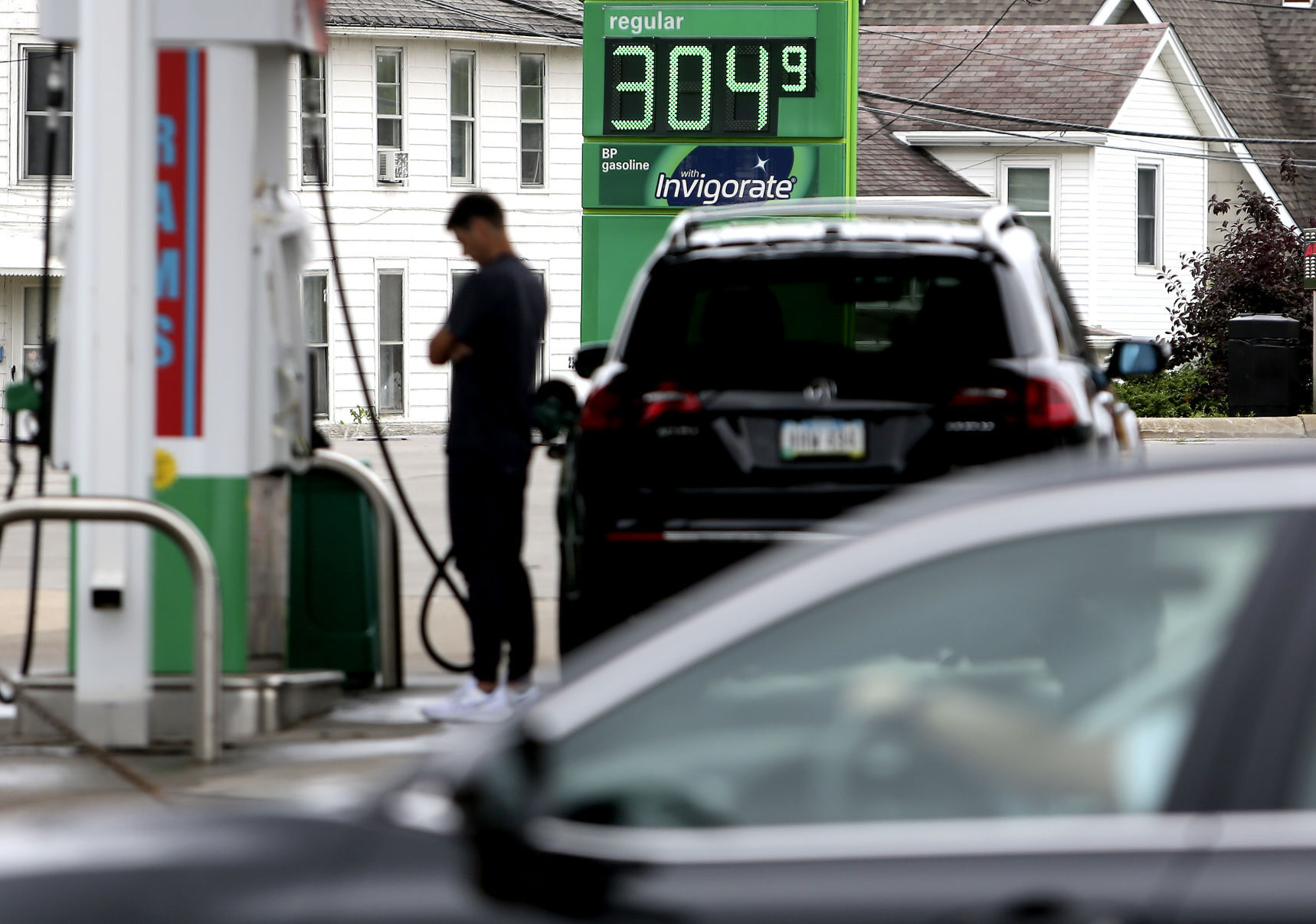From the gas pump to the grocery store, prices are climbing.
Loren Rice, an associate professor of accounting and business at Clarke University in Dubuque, said the U.S. is currently in the midst of the steepest inflation it has witnessed in nearly four decades.
“There is no question about that,” Rice said. “We have been wandering somewhere below 2% (inflation) every year for more than a decade. We are going to end up seeing inflation of 5% to 5.5% this year.”
Rice said the nation has not experienced inflation this steep since a multi-year stretch from the late 1970s to the early 1980s. During this inflationary period, prices rose 12.5% to 15%.
While that period was influenced by soaring oil prices, this one largely has been the byproduct of governmental policy, as elected leaders have sought to infuse cash into an economy that was on the verge of collapse during the COVID-19 pandemic.
“When you do that, it causes the value of the dollar to go down and it drives up inflation,” Rice said. “That is the natural process.”
Price increases have been evident at gas stations and in the housing market of late. Perhaps the most damaging impacts, however, are occurring at grocery stores, Rice said.
Global food prices rose 4.8% from April to May, according to the United Nations’ food price index, marking the sharpest monthly rise in more than a decade. Prices now have risen in each of the last 12 months.
Rice believes this is putting a significant crunch on residents struggling to make ends meet.
“I think the single biggest place (where inflation is being felt right now) is for those people right on the margins,” he said. “Their food bill has gone up by a lot. And for people who are just trying to buy their groceries, that is becoming harder.”
Rice said price hikes at the pump are not as clearly tied to inflation, noting that unique industry dynamics — notably the instantaneous spiral of demand in the spring of 2020 and sudden rise this summer — are the main culprits.
Gas prices in Dubuque averaged about $2.90 per gallon on Tuesday, according to fuel analysis website GasBuddy.com. That is 65 cents higher than at this point last year.
Patrick DeHaan, head of petroleum analysis for GasBuddy, said relief isn’t on the horizon.
“Prices typically peak in late spring or early summer,” DeHaan said. “This year, we may not see prices peak for another four weeks. The peak could come in mid-July or early August.”
The climb in gas prices has been driven by multiple factors, DeHaan explained.
He noted that oil production has been slow to recover, largely because the oil industry — like many other economic sectors — has struggled to replace a labor force that was slashed dramatically amid the pandemic.
As supply lags, demand has soared.
DeHaan noted that this year’s economic recovery has occurred faster than analysts expected.
“Prices will inherently rise until demand starts to go down,” he said. “It’s been 16 months since people have traveled, and they are eager to get out. I think gas prices can get to $3 or even $4 (per gallon), and it is not going to slow demand.”
Housing costs have also continued to rise both nationally and locally.
Deb Jenny, a broker with Platteville (Wis.) Realty, said many people have seen the rising costs of purchasing a home and decided to sit the market out altogether.
“If you have to buy, it is not easy right now,” she said. “The competition is tough, and there aren’t many choices.”
These dynamics have meant that many local residents are signing on to longer leases.
“Some people are getting locked into renting,” Jenny said. “They cannot find anything in their price range, or they keep getting outbid (when they try to buy a new house).”
But renting is also getting costlier, Jenny noted.
She said landlords have increased monthly rents because they are dealing with rising utility and insurance bills.
A recent study from Core Logic found that rents for single-family homes were up 5.3% nationally in April, the most recent month with complete data.
The severity and duration of ongoing inflation isn’t yet clear, according to Rice. He said the sudden rise in prices could be short-lived. However, it also could continue if wages continue to rise in the months and years ahead.
Federal Reserve Chairman Jerome Powell told Congress last week that he still believes the current spike in inflation is transitory and being caused primarily by momentary problems in reopening the economy such as supply-chain bottlenecks.
Despite concerns about rising costs, Rice emphasized that the governmental policies that precipitated the current inflation were not necessarily bad ones. He argued that the stimulus programs and cash infusions have helped the economy avoid a severe recession.
“We created a problem (with policies that led to inflation),” Rice said. “But is the problem we solved more serious than the one we created? Absolutely.”



